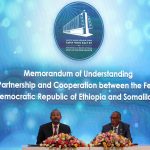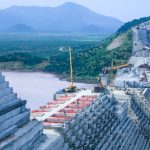Egyptian Threats to Ethiopia: An Academic Perspective on the Evolving Geopolitical Landscape
Egypt and Ethiopia, two prominent nations on the African continent, have historically boasted rich civilizations and contributed significantly to the cultural, economic, and political narratives of the region. Their intertwined histories, while ripe with collaboration and shared interests, have also witnessed periods of tension. This essay aims to critically analyze the nature and underpinnings of perceived threats from Egypt to Ethiopia, offering a comprehensive academic perspective on the multifaceted relationship between the two nations.
Historical Context and Water Politics
The roots of tension can be traced to the geopolitics of the Nile, the world’s longest river, which has been a lifeline for civilizations since ancient times. Originating from Lake Tana in Ethiopia, the Blue Nile meets the White Nile in Sudan, flowing northward to form the Nile, which feeds Egypt’s agricultural heartland.
Historically, Egypt has maintained a considerable degree of control over the Nile waters, backed by colonial-era agreements that favored downstream countries. These agreements, particularly those from 1929 and 1959, effectively excluded Ethiopia from utilizing the Nile’s resources, despite the Blue Nile contributing approximately 85% of the river’s total flow.
The construction of the Grand Ethiopian Renaissance Dam (GERD) by Ethiopia has exacerbated these tensions. Designed to bolster Ethiopia’s energy production, the dam is seen by Egypt as a potential threat to its water security, given that the Nile provides nearly 90% of Egypt’s freshwater.
Perceptions of Security Threats
The Nile, beyond its economic significance, also holds strategic importance. From Egypt’s perspective, any project that alters the Nile’s flow or compromises its water quality can be perceived as a national security threat. Ethiopia’s unilateral actions regarding the GERD’s construction and its filling have, therefore, heightened these security concerns.
However, from an academic standpoint, it’s crucial to distinguish between perceived threats and actual threats. While Egypt perceives the GERD as a potential existential threat due to its reliance on the Nile, objective analyses suggest that, with proper management, the dam can be beneficial for all parties involved.
Economic Implications
Beyond water politics, the economic aspirations of both nations can be another source of perceived threats. As Ethiopia seeks to expand its economy and elevate its status on the international stage, its efforts could be seen as challenging Egypt’s historically dominant role in the region. Projects like the GERD signify Ethiopia’s ambition to be a significant energy exporter, potentially altering the region’s economic dynamics.
Diplomatic and Regional Dynamics
The Horn of Africa, with its strategic significance, has always been a hotbed for regional politics. Ethiopia’s alliances, both within and outside the African continent, can influence its relationship with Egypt. The involvement of foreign powers, either as mediators or stakeholders in the Nile’s geopolitics, adds layers of complexity. For instance, the United States and China, with their investments and interests in both nations, play crucial roles in shaping the diplomatic narratives.
Furthermore, the African Union’s role in mediating between the two countries underscores the significance of regional diplomacy. However, the perceived imbalance in representation or favoritism can lead to distrust, further complicating the resolution process.
Potential Pathways to Cooperation
It’s essential to understand that while threats, both perceived and real, exist, there are numerous avenues for collaboration between Egypt and Ethiopia. Shared interests, such as combating terrorism, ensuring regional stability, and mutual economic growth, provide a solid foundation for cooperation.
Joint initiatives on water resource management, information-sharing agreements, and collaborative research can help bridge the trust deficit. Creating multilateral frameworks involving other Nile Basin countries can also foster an environment of mutual understanding.
Conclusion
The intricate relationship between Egypt and Ethiopia, characterized by both cooperation and contention, is a testament to the multifaceted geopolitical dynamics of the African continent. While water politics, economic ambitions, and regional diplomacy contribute to the narrative of threats, it’s pivotal to approach the discourse from an informed, academic perspective, free from hyperbolic interpretations.
Constructive dialogue, transparent intentions, and an understanding of shared histories and futures can pave the way for a harmonious coexistence. As both nations progress towards their aspirations, it’s imperative to remember that cooperation, not contention, will ensure sustainable growth and stability in the region.




